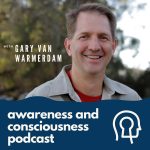
Understanding Conflicting Desires
Our body has physical desires, our emotions have a desire to express love and our mind has a desire to have its beliefs and expectations met. This can create some internal conflict that gets more complicated when we add another person’s desires to the mix. The desires from the body and emotions are natural and intrinsic. The needs of the mind are artificial and often put limitations and unnecessary criteria on our emotions.
How do we deal with conflicts between what our mind says and what our emotions desire? Being aware and conscious of the desires of the body, the emotions and the mind create an opportunity to eliminate conflicts and make better choices.
People often make a list in their mind of what they want in a partner or a relationship in order to satisfy their desires. They have in their mind what the relationship should look like, how they are supposed to be and how their partner is supposed to be. This list is what the mind assumes will satisfy the emotional and physical wants. This list is usually filled with expectations and beliefs of what the mind wants. When this happens the mind becomes the master and the emotions become secondary. This is a recipe for conflict in relationships because the mind doesn’t usually have good information on satisfying our emotional needs.
When the emotions of love and respect are given priority and the mind becomes the servant we have an opportunity for harmony. By placing the emotional quality of the relationship as the priority we become aware of how we want to feel in our relationships. How we feel becomes more important than what it looks like. Our expectations and what it is supposed to look like become secondary. Our mind then becomes the servant to make agreements and manage expectations in order to honor the quality of love and respect. The way we communicate becomes more respectful of how we feel and how our partner feels. We address differences with the emotions of respect and kindness instead of with emotions of frustration and anger. We may still have disagreements to dissolve but we do it with a completely different approach.
When the agenda in the relationship is to meet the expectations and agreements in the mind it is with the hope and desire to satisfy our emotional and physical desires. We might as well recognize that the emotions are the priority and stop letting the mind place the expectations first.
You can listen to the previous episode: Love Relationships Part 1 here
